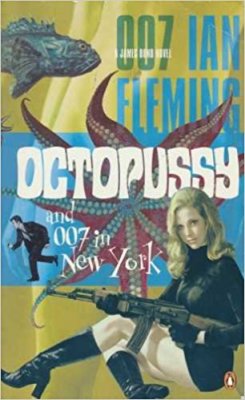- Messages
- 10,953
- Location
- vancouver, canada
Thanks, I will check it out.Buckley's classic undergrad memoir, God and Man at Yale is a pleasant read.
Thanks, I will check it out.Buckley's classic undergrad memoir, God and Man at Yale is a pleasant read.

Wouk's "little novels" are the ones I enjoy the most -- "Aurora Dawn" and "City Boy" are wonderful slices of their own particular worlds, without any pretense at being Littahrahchoor. He can be a bit ponderous when he wants you to take him seriously, but when he's writing with a light touch, he's wonderful. And I enjoy writing about him in the present tense because the old boy is still alive and well at 102.
....
The World of Yesterday by Stefan Zweig. Apparently Stefan Zweig was a very successful writer before WWII and very widely read. After his death in 1942 he fell into obscurity.
The World of Yesterday is a fascinating look at Europe during the period of roughly 1900 to 1940 through the eyes of a bourgeois, assimilated, very successful Viennese Jew. He seems to know everyone in the intellectual circles of western Europe and is quite the progressive pan-European visionary, anticipating the whole European Union project by decades. Indeed, this book gives the lie to the false notion that European unity sprang from the wreckage of WWII with no antecedents...
So I tend to be forgiving about young people in the throes of a "Littahrahchoor" infatuation.
Everything by Stefan Zweig is worth reading. At one time he was the most widely read author in Europe, it’s only recently that his books have been in print in English, crazy.The World of Yesterday by Stefan Zweig. Apparently Stefan Zweig was a very successful writer before WWII and very widely read. After his death in 1942 he fell into obscurity.
The World of Yesterday is a fascinating look at Europe during the period of roughly 1900 to 1940 through the eyes of a bourgeois, assimilated, very successful Viennese Jew. He seems to know everyone in the intellectual circles of western Europe and is quite the progressive pan-European visionary, anticipating the whole European Union project by decades. Indeed, this book gives the lie to the false notion that European unity sprang from the wreckage of WWII with no antecedents. Anyway, a very good read (with a lot of interesting details). I'd call it mandatory reading for anyone interested in the culture and history of Europe in the first forty years of the twentieth century. A very enjoyable read, not a "slog" at all.
Everything by Stefan Zweig is worth reading. At one time he was the most widely read author in Europe, it’s only recently that his books have been in print in English, crazy.
At the moment I’m reading Henry James’ ‘Portrait of a Lady’. It’s my first Henry James and I’m quite enjoying it but the going tends to be slow.
I have, it was excellent, have you read it? Thankfully he didn’t try to emulate James’s style. It has the best description of alcoholism I’ve ever read in the drunken manservant. Another Irish writer, John Banville, has written a sequel to ‘The Portrait of a Lady’. Like a lot of 19th century heroines Isabel Archer kind of deflates at the end of the novel apparently (I’m hoping to finish Portrait over Christmas).Have you read Colm Toibin's study of Henry James' inner life, The Master?
(I’m hoping to finish Portrait over Christmas).
Thanks, I’ll give it a look.If you haven't read Pierre Ryckmans-Simon Leys' The Hall of Uselessness, treat yourself over the holidays.
Leys was a philosopher I wish I had met earlier in life, though I appreciate him all the more so in maturity.
 John Lofgren Monkey Boots Shinki Horsebuttt - $1,136 The classic monkey boot silhouette in an incredibly rich Shinki russet horse leather.
John Lofgren Monkey Boots Shinki Horsebuttt - $1,136 The classic monkey boot silhouette in an incredibly rich Shinki russet horse leather.  Grant Stone Diesel Boot Dark Olive Chromexcel - $395 Goodyear welted, Horween Chromexcel, classic good looks.
Grant Stone Diesel Boot Dark Olive Chromexcel - $395 Goodyear welted, Horween Chromexcel, classic good looks.  Schott 568 Vandals Jacket - $1,250 The classic Perfecto motorcycle jacket, in a very special limited-edition Schott double rider style.
Schott 568 Vandals Jacket - $1,250 The classic Perfecto motorcycle jacket, in a very special limited-edition Schott double rider style. Finished the last Ian Fleming James Bond "story," "007 in New York." It's less a short story than a small travelogue of Bond's reactions to late 1963 New York, but it's fascinating nevertheless. Odd that I'd never read it before it was included in the 2008 short story collection Quantum of Solace (for one of the stories, but also as a tie-in to the Bond movie of that year).

That's the same edition that I've borrowed from the library, the 2008 ones with the fantastic paintings, except this is a collection of all the Fleming short stories: the ones from For Your Eyes Only, plus "Octopussy," "The Property of a Lady," and the dynamite short story "The Living Daylights," which became the opening part of the first Timothy Dalton film.Ooh, I have to get a copy of that story. Amazon to the rescue:
View attachment 98909
That's the same edition that I've borrowed from the library, the 2008 ones with the fantastic paintings, except this is a collection of all the Fleming short stories: the ones from For Your Eyes Only, plus "Octopussy," "The Property of a Lady," and the dynamite short story "The Living Daylights," which became the opening part of the first Timothy Dalton film.